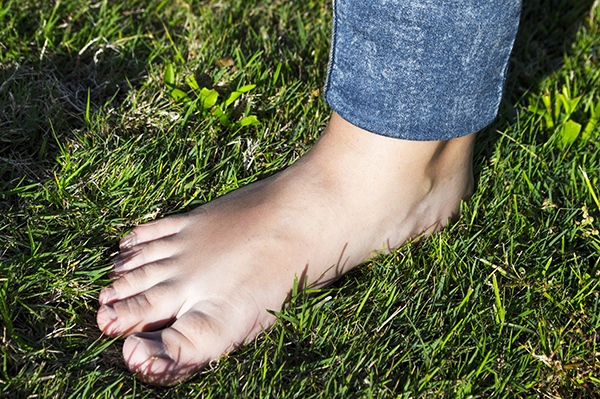For those of us that are lucky enough to have a garden space no matter how big or small, we either look at it as a place of relaxation or chores. However you see it, it is a space where we can switch off from work or worry, take in fresh air and get back to nature.
Thank you for reading this post, don't forget to subscribe!
Vitamin D is called the sunshine vitamin and up to 40% of adults are deficient in it. It is an essential vitamin and helps our bodies absorb calcium and phosphate from foods which in turn contributes to maintaining healthy muscles, bones and teeth. It is important to wear sunscreen as sunlight can increase health risks, but scientists recommend getting outside preferably in the sunshine three times a week to keep up natural levels of vitamin D. Spring is the perfect time to initiate this as it’s the start of the grass growing season and the lawnmower will be making a regular appearance.
Most of us feel better when the sun is shining, but research has shown that just being outdoors increases the production of endorphins improving clarity and a sense of emotional wellbeing.

Grounding is a theory that laying on the grass or walking on the lawn barefoot can regulate hormone levels, reduce high blood pressure and even aid digestion. This research suggests that the earth’s subtle electromagnetic waves has beneficial effects, which explains why we gain a restorative feeling walking on the beach and hugging trees. This theory may be questionable to some, but we like it.
Smell is the most perceptive sense and is closely linked to emotional memory. The smell of Jasmine can be calming, fresh mint stimulating and rosemary enhances memory. Alternative and complementary therapies use a catalogue of naturally derived scents to treat everything from headaches to digestive problems. So it’s plausible that smelling flowers and freshly cut grass can put us in an upbeat mood (perhaps not the hay fever sufferers).

By breathing in phytoncides which are released into the atmosphere by plants and trees, the body increases white blood cell production which is essential for fighting infections and disease.
Garden projects are a great way to stimulate creativity and provide a sense of achievement. Working in the garden can be the perfect time to take back some time for yourself, working solo can help you clear your thoughts and allow you to focus on one task at a time.
The garden is a social place, an area to enjoy with friends and family. Gardening or working on outdoor projects can improve personal relationships and allow you to connect through ideas or collaboration.
If you do not have a garden of your own leasing an allotment will give you a valuable reason to get outdoors. Allotment tenancies date back hundreds of years and not only supply you with food for the table, they provide a genuine sense of purpose and community. Using a cultivator burns a lot of calories, whilst planting and harvesting your own crops means you can work organically, knowing what you are consuming is free of unnecessary chemicals.
Science has proven that green spaces are beneficial to humans and how they aid us is respective to our needs at the time. Whether you are relaxing on a sun bed, tending your allotment or playing games with your children, getting outdoors is something we all need to find time for.
Resources:
https://www.gov.uk/apply-allotment
https://www.nsalg.org.uk/allotment-info/benefits-of-allotment-gardening/
https://www.nhs.uk/live-well/healthy-body/how-to-get-vitamin-d-from-sunlight/
https://www.thrive.org.uk/how-we-help/what-we-do/social-therapeutic-horticulture
